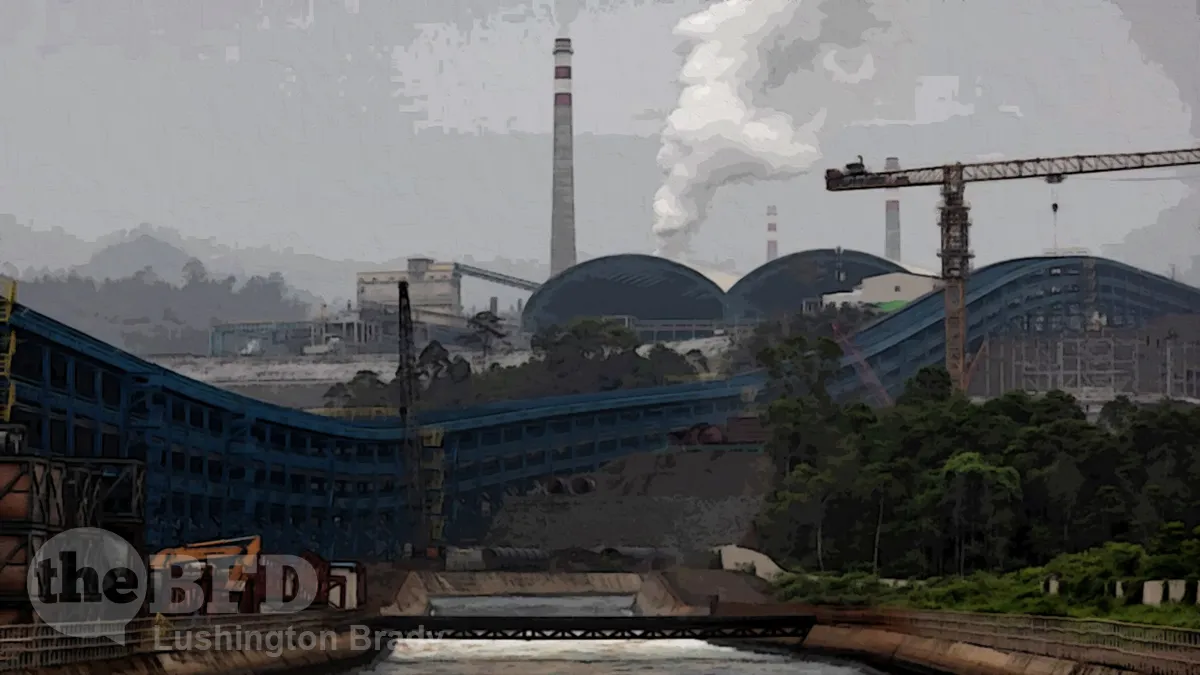Table of Contents
It was over eighty years ago that George Orwell pointed out the essential hypocrisy of “the middle-class Left”. They were all “at bottom a sham”, because, for all their preaching against the exploitation of the Third World poor, their very lifestyle “demands that the robbery shall continue”.
Nothing has changed.
The green-left today prattle about “saving the planet”, even while the very prescriptions they advocate — from wind turbines to solar farms — wreak environmental havoc on large swathes of the planet. Few green-left fetishes, though, are as much of a blight on the planet as EVs. While these luxury behemoths might not produce obvious emissions during use (although their sheer weight causes increased particulate pollution from tyres, as well as increased wear on roads), the staggering cost of the pollution involved in making them in the first place well exceeds anything from manufacturing a petrol vehicle.
Almost all of that can be sheeted home to their essential component — gigantic batteries.
There is only one road in and one road out of Morowali and every day at least 100,000 workers must use it to reach the world’s largest single nickel industrial park – Indonesia’s 21st century version of England’s “dark satanic mills”.
What was once a sleepy tropical fishing village in Central Sulawesi is now a town trapped inside a massive mining industry that is spreading outward and subsuming all in its path. Giant coal mounds sit behind shops and boarding houses on one side of the potholed, dusty road, scarred mine pits, smelters, power plants and belching chimney stacks on the other – a bleak landscape that evokes poet William Blake’s description of England’s nature-obliterating early Industrial Revolution.
Overhead conveyor belts transport millions of tonnes of coal to power an energy-intense industry Indonesia hopes will form the backbone of the world’s green electric vehicle sector.
“It’s the biggest mess. It’s just sad and horrible,” one veteran Indonesia-based mining expert told The Australian.
But, hey, it’s out of sight of the smug bourgeoisie of Fitzroy or Ponsonby, so who cares?
The country’s nickel exports have surged from $US6bn in 2013 to more than $US30bn in 2022 on the back of what the government says is $US29bn in foreign investment, a large part of that from China’s Tshingshan Holding company – the world’s largest stainless steel producer.
But in the process it has flooded global markets, driven prices down by half in the past year and forced the closure of Australian nickel mines that cannot compete with a product made from cheap labour and low environmental standards. Smelters, mines and industrial parks have sprouted across Sulawesi and on the famed spice island of North Maluku, displacing populations, clearing tropical forest, polluting waterways and destroying traditional livelihoods, numerous recent studies have claimed.
Dazzled by Beijing’s Belt and Road billions, critics say, Indonesia has ended up with a nickel industry dominated by Chinese companies that have scant respect for the environment and labour standards.
Well, we’ve seen how readily China pollutes its own lands, so why would they care about anyone else’s?
And, when everything looks “clean and green” in inner Sydney, who cares that it’s black and filthy in some third-world boondock?
When it rains, Morowali’s coastal waters turn black from coal soot, the rivers red from waste tinted with oxidised iron that runs off the poorly-maintained mines, locals say.
All year round, workers and their families present at Morowali’s main community health centre with respiratory diseases, skin and eye complaints linked to the sulfuric acid used in battery-grade nickel processing, and the thick coal dust that blankets the town […]
“It should be that if they want to create green cars they have to make sure the product doesn’t create environmental damage. They should ensure worker safety and welfare too, but that’s not what’s happening,” Rudin, chairman of the Morowali Industrial Workers Union and a nickel smelter worker, told The Australian.
Of course not — wealthy Greens voters have a planet to save.
Wealthy and environmentally conscious consumers worldwide are embracing electric vehicles as a way to help reduce global carbon emissions […]
[Sam Riggall, managing director of Australia’s Sunrise Energy Metals says…] “No one seems to care how the sandwich is being made as long as it makes them feel better.”
The Australian
The problem remains that, no matter which way you cut it, it’s still a gigantic, steaming poo sandwich.








